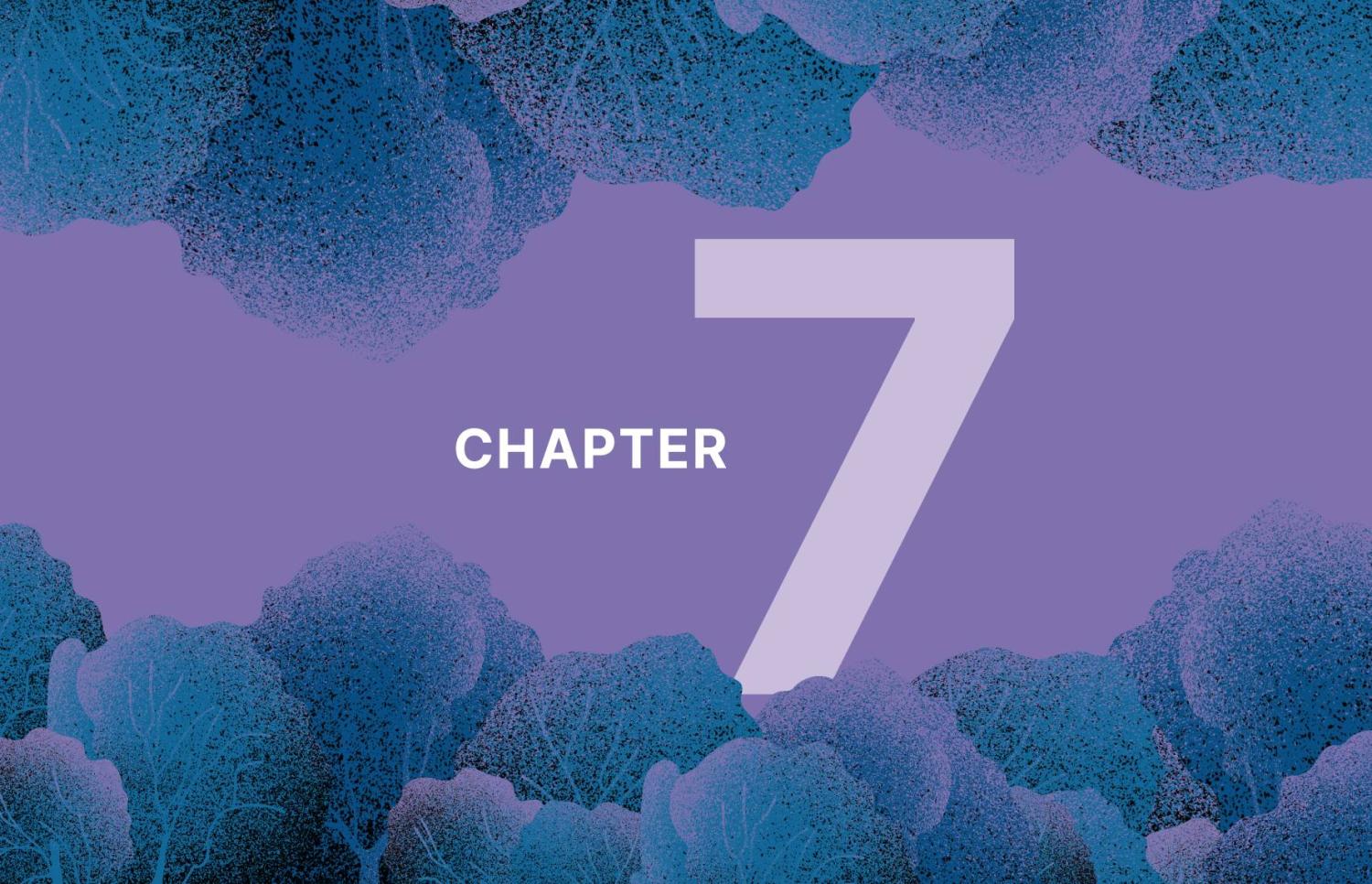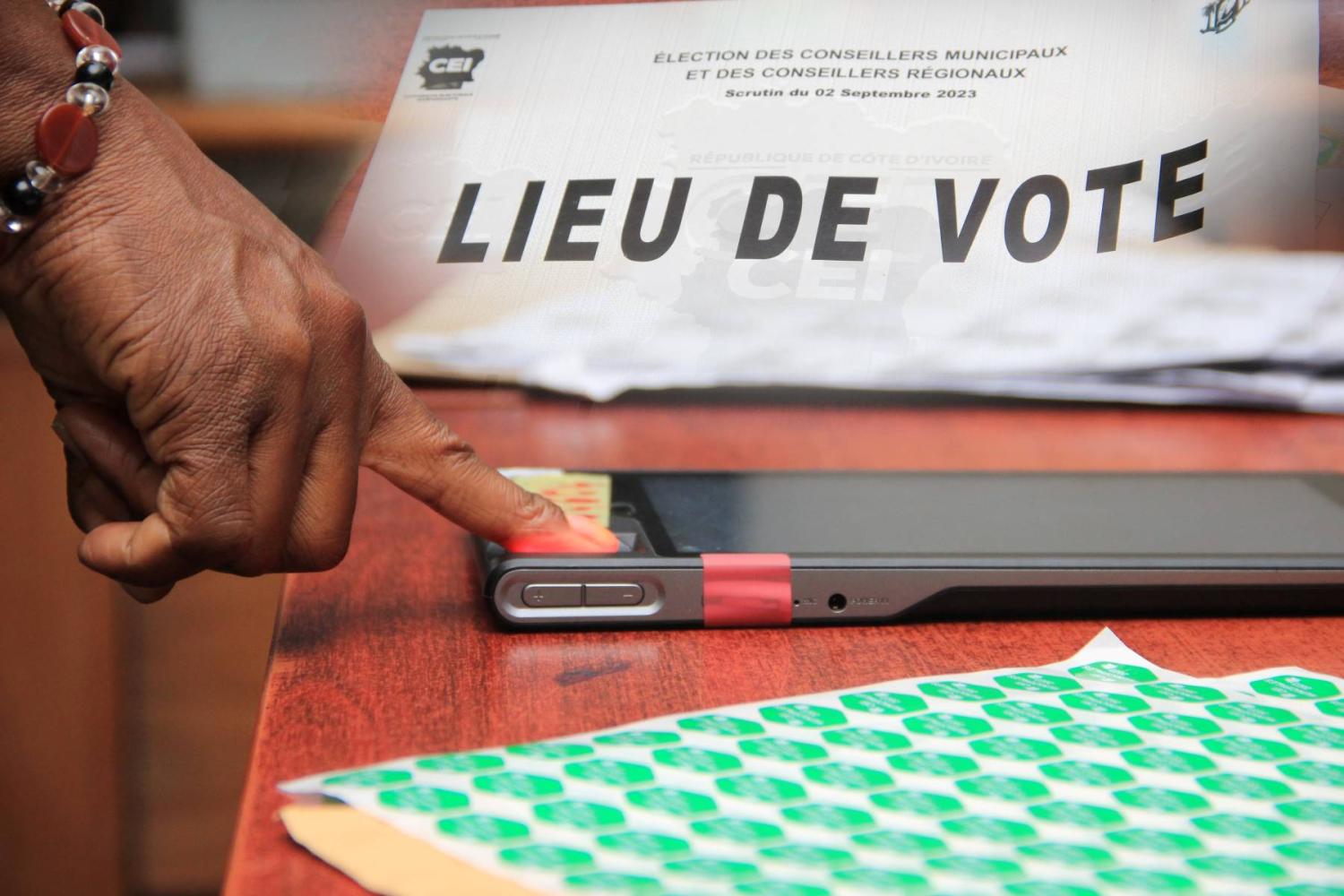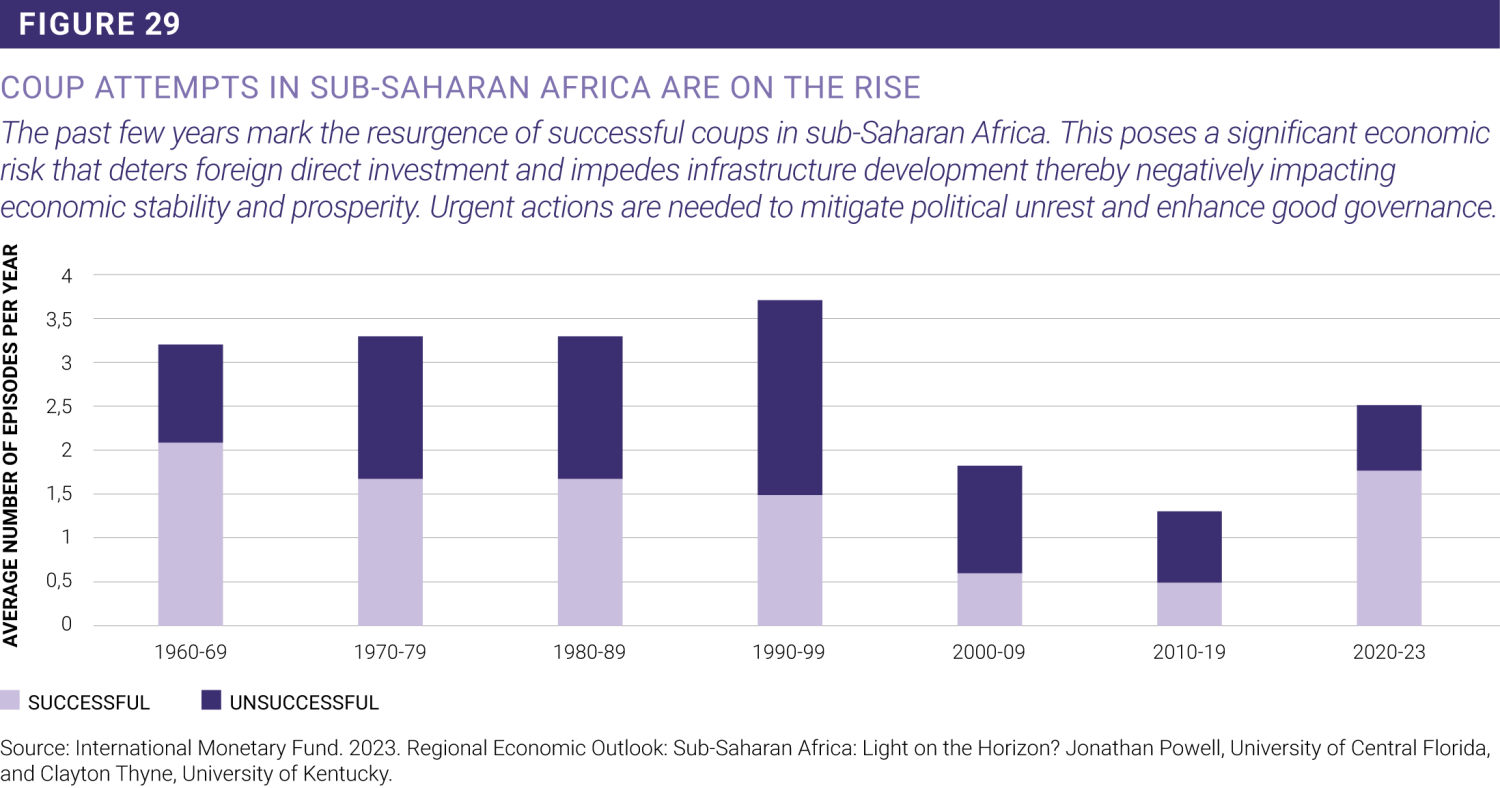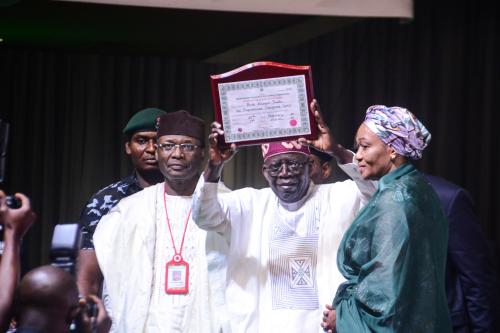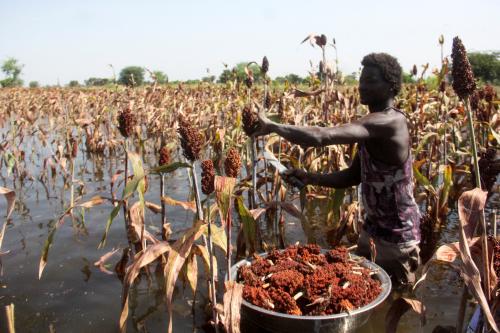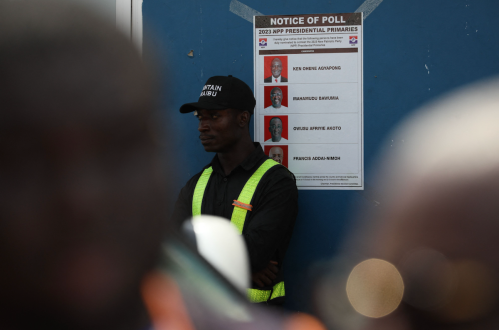In Chapter 7 of Foresight Africa 2024, our authors delve into ways African leaders can regain the trust of their citizens.
Essay
Governance trends in Africa: Resilient demand, flagging supply
By Joseph Asunka, CEO, Afrobarometer; E. Gyimah-Boadi, Board Chair, Afrobarometer
Africa’s democratic project is facing its toughest challenge yet. The men in green are back, and prospects for democratic consolidation have dimmed significantly. In just four years (2020-2023), seven countries—Mali, Chad, Guinea, Sudan, Burkina Faso, Niger, and Gabon—have fallen to military coups, prompting an uncomfortable but reasonable question: Which country is next? While the African Union (AU) and Economic Community of West African States have condemned these coups and, in the case of Niger, threatened military action, citizens in some countries have openly celebrated them on the streets.
In the spirit of a zero tolerance for unconstitutional changes of government (UCGs), the AU and regional economic communities (RECs) have adopted numerous governance instruments, some dating back to Organization of African Unity days, but have struggled to oversee their effective implementation, largely due to non-compliance by member states. In 2014, the AU Peace and Security Council noted that UCGs often stem from deficiencies in governance marked by “greed, selfishness, mismanagement of diversity, mismanagement of opportunity, marginalization, abuse of human rights, refusal to accept electoral defeat, manipulation of constitution[s], as well as unconstitutional review of constitution[s] to serve narrow interests and corruption.”1
The failure of governments to deliver democratic and accountable governance sets the scene for confrontation between Africans and their political authorities in the coming years.
This diagnosis is largely on point. Governance deficits continue to plague the region as elected governments fail to address crime and insecurity, widespread corruption, official impunity, and inadequate infrastructure and basic services. The military juntas have cited some of these as reasons for their actions, a rhetoric that clearly resonates with citizens. But the euphoria that greeted the military’s arrival in some countries is likely to be short-lived as their performance record on governance, economic management, and even security is no better.
Amid global democratic decline intensified by military coups in Africa, what do the views of ordinary citizens tell us about the prospects of a democratic Africa? Afrobarometer, a pan-African survey research organization, recently spoke to about 55,000 of them in 39 countries.
Democracy in Africa
Notwithstanding strong headwinds, the aspiration to live under governments that are democratic and accountable remains strong among Africans. In the latest round of Afrobarometer surveys (2021-2023), two-thirds of respondents said they prefer democracy to any other system of government.2 They were even more emphatic in their rejection of non-democratic alternatives, with roughly eight in ten rejecting “one-man rule” and “one-party rule,” while nearly seven in ten opposed military rule.
Support was not limited to the “d-word.” Citizens also strongly endorsed norms, institutions, and practices associated with democratic governance, such as choosing political leaders through the ballot box (still strong at 76% despite a decline from 81% in 2014), constitutional limit on presidential tenure (72%), presidential compliance with court rulings (69%), parliamentary oversight of the executive (67%), media freedom (65%), multiparty competition (64%), and accountable governance (61%).
Indeed, between 2014 and 2023, support for media freedom increased by 11 percentage points, the preference for accountable governance over effective governance gained 10 points, and demand for presidential compliance with court decisions increased by 4 points.
Worrying trends
But other over-time trends portend danger for the African democratic-governance project. Over the past decade, popular support for democracy declined sharply in several countries, including Mali (down by 36 percentage points), Burkina Faso (-26 points), South Africa (-21 points), Namibia (-19 points), and Guinea (-15 points). Indeed, support for democracy is now a minority position in Mali (39%), South Africa (43%), Angola (47%), Mozambique (49%), and Lesotho (49%).3
Declining resistance to military rule and significant tolerance of military intervention are more a reaction to the failure of elected leaders to meet citizens’ democratic aspirations than an attraction to the military rule per se.
Opposition to military rule has also weakened, by 9 percentage points on average, across 32 countries for which we have over-time data. Only three countries— Mozambique, Liberia, and Uganda—record significant increases in popular aversion to military rule, while we see alarming drops in Mali (-46 percentage points), Burkina Faso (-34 points), Côte d’Ivoire (-29 points), and Niger (-29 points).44
Additionally, more than half (53%) of Africans expressed a willingness to tolerate military intervention “when elected leaders abuse power for their own ends” while a little over 4 in 10 (42%) said the military “should never intervene in politics.” Tolerance for military intervention is the majority opinion in 23 of 39 surveyed countries, led by Mali (82%), Tunisia (72%), and nearly 70% of Ivoirians, Guineans, and Tanzanians.5
The youth factor: Cause for optimism and concern
Given Africa’s median age of about 19, the attitudes of African youth will shape the future of democracy on the continent. The good news is that youth (aged 18-35) differ very little from their elders in their support for democracy and its core institutions and their rejection of military rule and other non-democratic alternatives.
However, youth expressed greater willingness to tolerate military intervention if elected leaders abuse their power: 56% of those aged 18-35 vs. 47% of those aged 56 and above. Interestingly, youth are less trustful of the military as an institution than their elders.6
Supply of democracy: A gloomy picture
While Africans have remained committed to democracy, the supply side of the equation is much less encouraging. Perceptions of democratic and accountable governance delivered by elected leaders have either been declining over time, as in the case of freedom of speech and presidential respect for the courts and Parliament, or have remained stagnant at very low levels, as in the case of equal treatment before the law.7
The proportion of citizens rating their country as a democracy has dropped by 3 percentage points, on average, across the 32 countries where we have overtime data between 2014 and 2023, with steep declines in Mauritius (-33 points), Mali (-30 points), and Botswana (-23 points). And citizen satisfaction with the way democracy works has declined in a majority of countries (5 points on average across 32 countries), most strikingly in Botswana (-38 percentage points), Mauritius (-34 points), Mali (-24 points), and South Africa (-23 points).8
The fact that long-standing democracies such as Botswana and Mauritius are failing to live up to their citizens’ expectations must be marked as an important danger signal. More broadly, the failure of governments to deliver democratic and accountable governance sets the scene for confrontation between Africans and their political authorities in the coming years.
What can be done?
Declining resistance to military rule and significant tolerance of military intervention are more a reaction to the failure of elected leaders to meet citizens’ democratic aspirations than an attraction to the military rule per se. AU and RECs’ leadership and other stakeholders on the continent and beyond must therefore take steps to enhance the supply of democratic governance, including:
- Investments in proactive prevention of “constitutional coups,” including, for instance, strong condemnation of such “constitutional coups” by the African Union and the Regional Economic Communities; other unconstitutional changes in government by elected leaders; and securing firm timelines for transition to civilian rule in countries currently under military rule—before the inevitable public revolts and the brutal response that would follow.
- Aid conditionality to promote democracy and human rights. Previous Afrobarometer findings show that more than half (51%) of Africans favor such aid conditionality, including about seven in ten citizens in Senegal, Tunisia, Tanzania, and Niger.9 Revisiting aid conditionality is likely to be viewed favorably if it contributes to securing Africans’ expressed desire for democracy and accountable governance.
Viewpoints
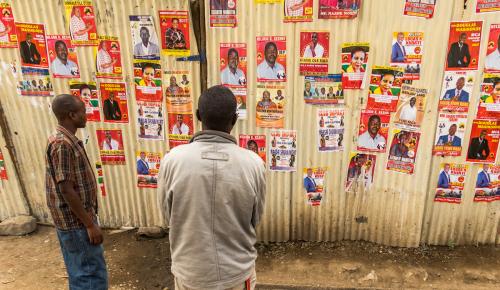
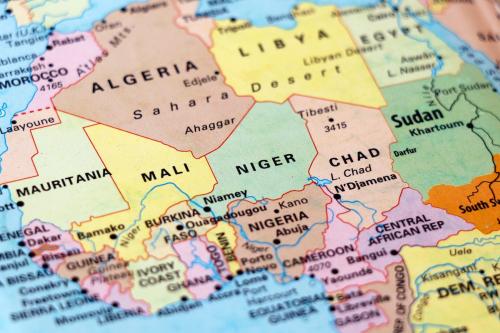
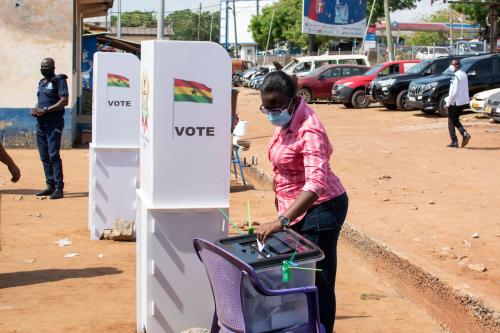
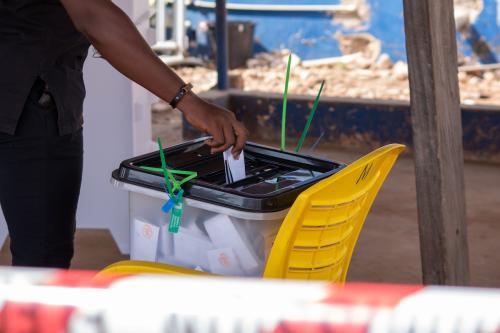
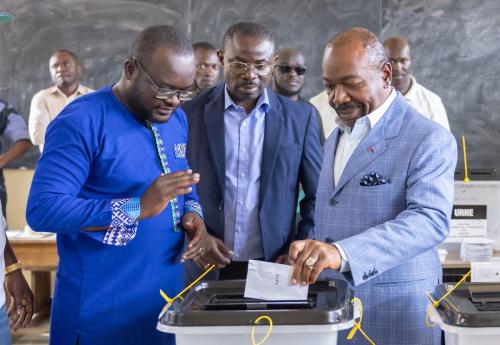
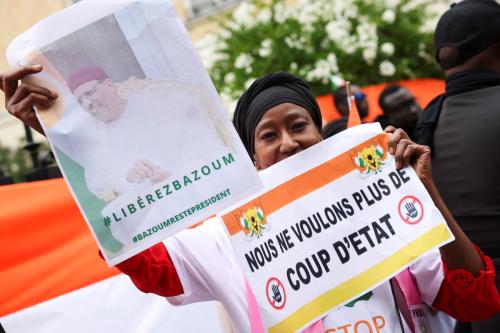

More from Foresight Africa 2024

In Chapter 1, our authors share policy options to address economic challenges facing Africa.
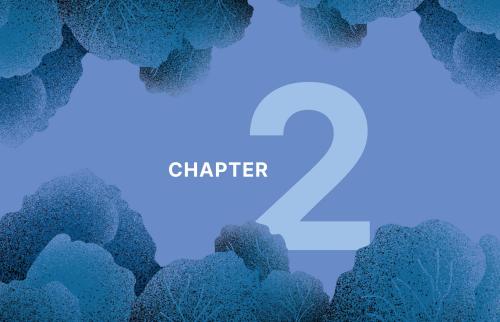
In Chapter 2, our authors tackle the existential climate change crisis.
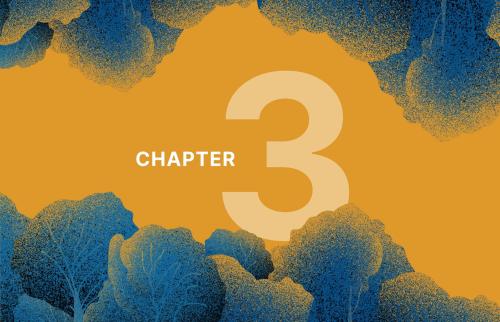
In Chapter 3, our authors focus on policies to support Africa’s entrepreneurs and small businesses.
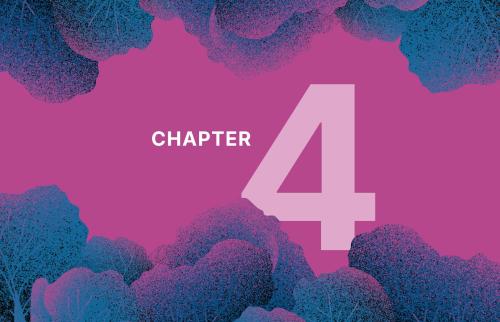
In Chapter 4, our authors examine trends in regional economic integration and trade.

In Chapter 5, our authors consider policy options to unlock the potential of the digital economy.

In Chapter 6, our authors explore the ways Africa’s women and girls are increasing opportunity for all.
-
Footnotes
- African Union. 2014. “Press statement of the 432nd meeting of the PSC on ‘Unconstitutional changes of Governments and popular uprising in Africa.’” https://www.peaceau.org/en/article/press-statement-of-the-432nd-meeting-on-unconstitutional-changes-of-governments-and-popular-uprisings-in-africa.
- Afrobarometer. Unpublished. Round 9 Survey: Pan-African Profile on Democracy and Governance
- Ibid.
- Note: Round 9 surveys were completed in Niger and Gabon before the military coups; and also before the conflict in Sudan erupted.
- Afrobarometer. Unpublished. Round 9 Survey: Pan-African Profile on Democracy and Governance.
- Sanny, Josephine Appiah-Nyamekye, Shannon van Wyk-Khosa and Joseph Asunka. 2023. “Africa’s youth: More educated, less employed, still unheard in policy and development.” Afrobarometer: Dispatch No. 734. https://www.afrobarometer.org/wp-content/uploads/2023/11/AD734-PAP3-Africas-youth-More-educated-less-employed-still-unheard-Afrobarometer-13nov23.pdf.
- Afrobarometer Network. 2023. “Africans want more democracy, but their leaders still aren’t listening.” https://www.afrobarometer.org/wp-content/uploads/2023/01/PP85-PAP20-Africans-want-more-democracy-but-leaders-arent-listening-Afrobarometer-Pan-Africa-Profile-18jan23.pdf.
- Afrobarometer. Unpublished. Round 9 Survey: Pan-African Profile on Democracy and Governance.
- Sanny, Josephine Appiah-Nyamekye and Jaynisha Patel. 2021. “Beyond borders? Africans prefer self-reliant development, remain skeptical of free trade and open borders.” Afrobarometer: Dispatch No. 492. https://www.afrobarometer.org/wp-content/uploads/2021/11/AD492-PAP4-Africans-prefer-self-reliant-development%5eJ-skeptical-of-free-trades-Afrobarometer-dispatch-bh-20nov21.pdf.
The Brookings Institution is committed to quality, independence, and impact.
We are supported by a diverse array of funders. In line with our values and policies, each Brookings publication represents the sole views of its author(s).
